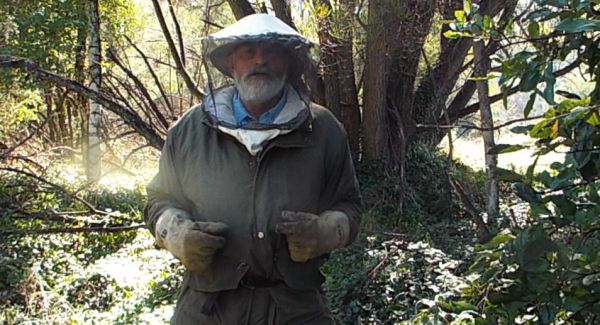
Wasp Patrol
Safety
The Wasp Patrol program is all about the safety of the community. European wasps pose a danger to people, pets and the environment. Our goal is to reduce that risk without increasing your personal risks.
Trapping queens, monitoring, and baiting will attract wasps that are already in your area. If these are placed away from main thoroughfares, they should not increase your risk of being stung above the existing level. Monitoring wasps should be done from a safe distance (2 metres). When emptying the monitoring station it is wise to tap it with a stick to make sure all wasps have left it.
The experimental baiting program uses chicken meat mixed with Ant Rid. The active ingredient is borax which is not toxic to humans and low toxicity to pets. Keep bait and poison separate from food. Wash your hands after mixing and placing baits. The goal of baiting is to attract wasps so there may be an increased wasp presence for a time.
Wasp hunting has a slightly higher risk of being stung than walking on the footpath. Wear appropriate footwear and clothing if venturing off the path. Do not approach too close to any nest you find.
Terminating European wasp nests has a considerably higher risk of being stung than Patrolling. You should consider your willingness to be stung when engaging in this activity and take appropriate steps to minimise the risk. People who are allergic to wasp stings would be advised not to participate.
Wear an appropriate level of protective clothing. This may include head veil, padded jacket and leather gloves. Avoid skin contact with the wasp dust
Make a rapid approach to nest, rapid exit after treatment.
Don’t try to treat too many close nests at the same time.
Make sure there is a clear exit route.
This activity does require you to have your wits about you and should only be attempted when sober.

Public safety:
If the nest is close to a public thoroughfare, ensure people are kept at a safe distance – (suggest 20 metres) and the terminator should remain at the site until wasp activity has reduced to below normal level. In residential areas you may need to alert neighbours to keep children and pets indoors.
Environmental considerations:
The Ant & Wasp dust is toxic to fish. Care should be taken to avoid the dust getting in waterways.